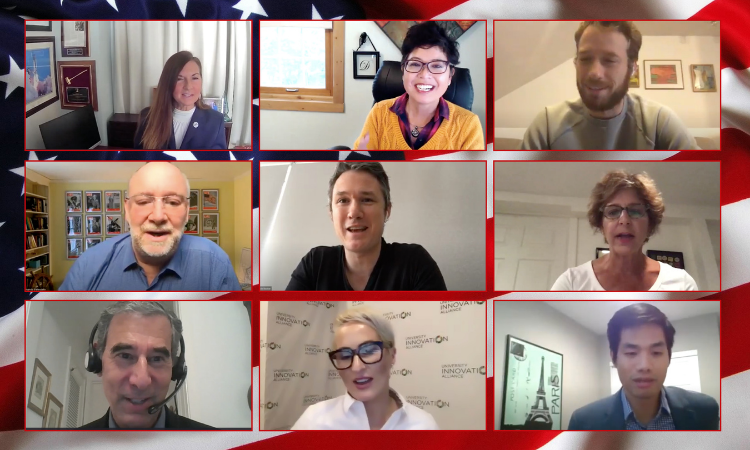It’s a year of adapting. While our USA EdTech Trade Mission would normally include an in-person visit, this year the delegation was held online—with fantastic insights and engagement. Participants heard from a series of speakers who are well-respected players globally in the EdTech space.
The purpose of the mission is to equip delegates with deeper knowledge of the American market and insights to influence their US entry strategy. In these sessions, speakers covered building global partnerships, selling to the K-12 market, the innovation agenda, and more.
40 delegates from 26 Australian EdTech companies participated. They represented different parts of the sector, from K-12 to higher education. Delegates were given the opportunity to take note of speaker insights, but also to directly ask questions relevant to their businesses.
Key points
- USA EdTech Trade Mission was entirely online
- 27 delegates from 23 countries
- Speakers were key players in EdTech space
- What makes a company investible
- EdTech in Silicon Valley
- US higher education innovation agenda
- Selling to and innovation in the K-12 market
The program also included business matching, in order for the EdTechs to better understand the voice of the US customer with relation to the company’s product. After submitting an outline of their solution and a short interview about what they would like to achieve in the US, they were matched with school superintendents, school administrators, and school leaders. This was to facilitate a deeper discussion into the product’s fit in the US setting.
The United States is a particularly appealing market for Australian companies seeking international expansion. The sheer scale, language, cultural familiarity and openness to innovation each offer exciting opportunities for Australian EdTech.
Below are some of the key learnings from our sessions.
What makes your company investible, with Rita Ferrandino and Jean Hammond
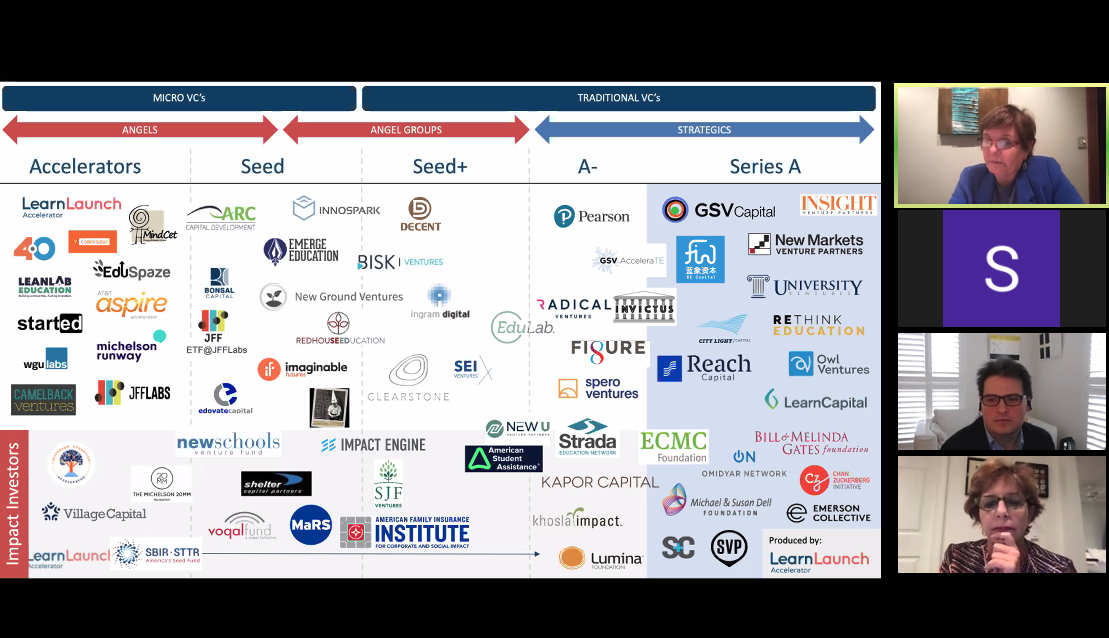
Jean Hammond, General Partner at LearnLaunch, and Rita Ferrandino, Partner at Arc Capital Development, spoke about the US EdTech and investment landscape.
The total number of deals in the EdTech sector are trending downwards, however the value of each deal is increasing. There is a shift towards these mega deals, particularly in places like China.
They are noticing a demand for workforce and business development EdTech solutions and services. Almost all established EdTech VC investors have a primary focus on workforce, but include a mixed portfolio. However, no matter which demographic is the target, growth rate matters. If a business grows quickly, the venture community will take note of that.
EdTech in Silicon Valley, with Ian Chiu
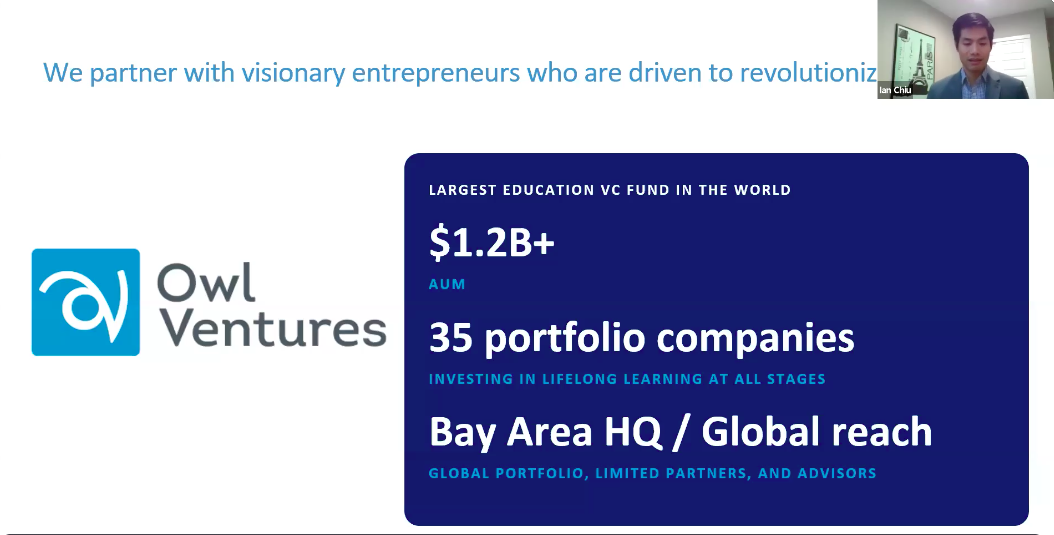
Ian Chiu, Managing Director of Owl Ventures, provided insight into how they partner with EdTech businesses.
Owl Ventures observes and works with organisations that are at the intersection of education and other major sectors, including healthcare and communications. With the companies that they invest in, they participate actively in the strategic vision.
For their mission, they are not solely focused on whether the companies they invest in overseas aim to sell in the US market. They look for visionary entrepreneurs that show promise, as they’ve noticed that some of the emerging economies have dynamic growth in this sector.
“We think the best companies in the sector are the ones that can show great outcomes—for the long term, not just the short term,” said Chiu.
His main advice for startups? To have a clear business model with a commercial lens.
US higher education sector innovation agenda, with Bridget Burns
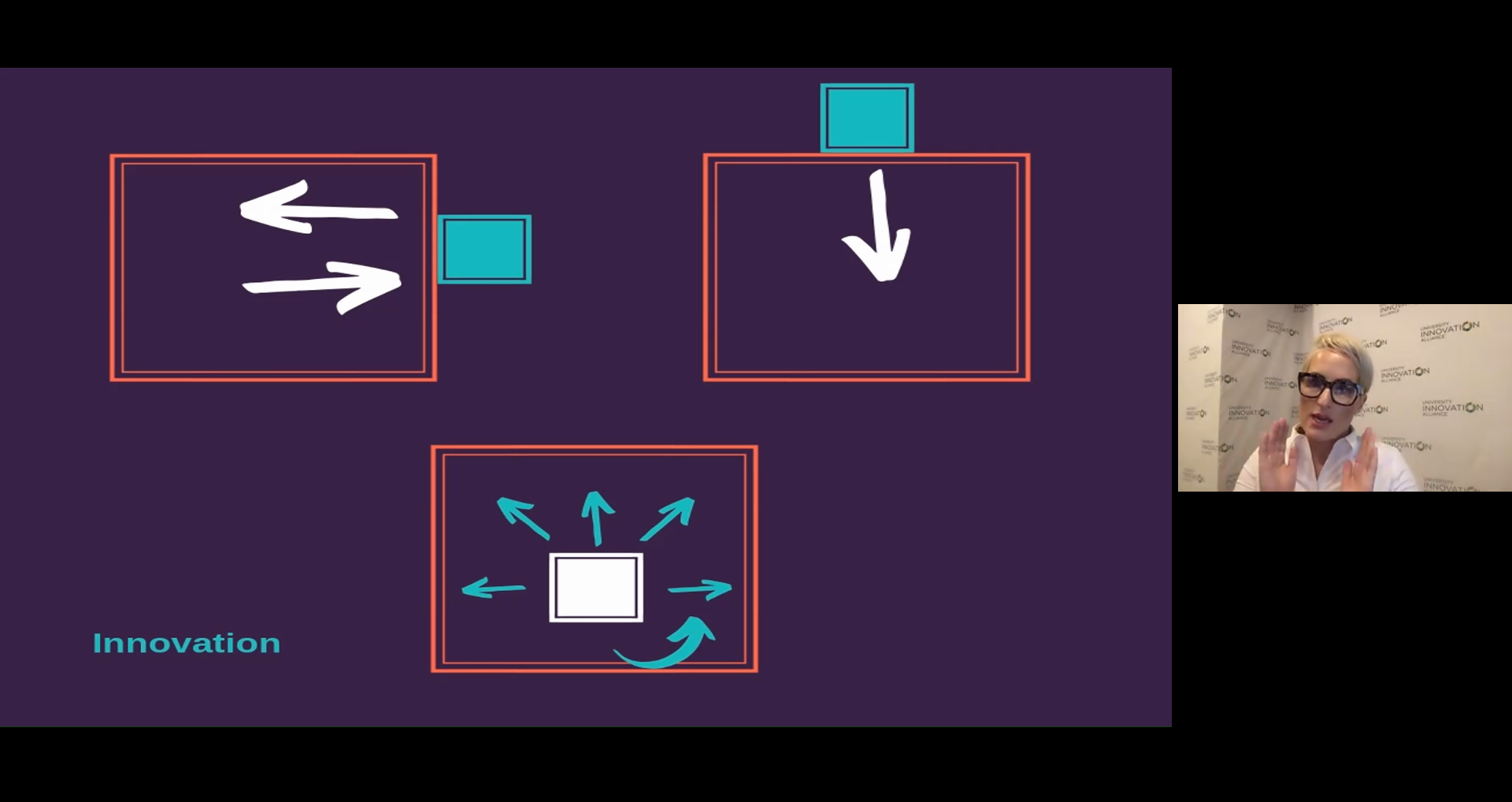
The University Innovation Alliance (UIA) is the leading national coalition of public research universities committed to increasing the number and diversity of college graduates in the United States. Bridget Burns, Executive Director at UIA, discussed their mission of closing the achievement gap and the innovative, collaborative framework at their organisation.
Partnerships in this community are key to transformative change. At UIA, participating universities are united by a clear sense of urgency to support more vulnerable parts of the population to graduate. Everyone supports others through sharing the outcomes and learnings from their initiatives. When a campus has an idea that works, the alliance enables secure data sharing and provides resources to kick-start the project on another campus.
Burns’ advice for EdTech companies? To hire people who are former academics to your sales department.
Selling to and innovation in the US K-12 market, with Rita Ferrandino and Michael Golden
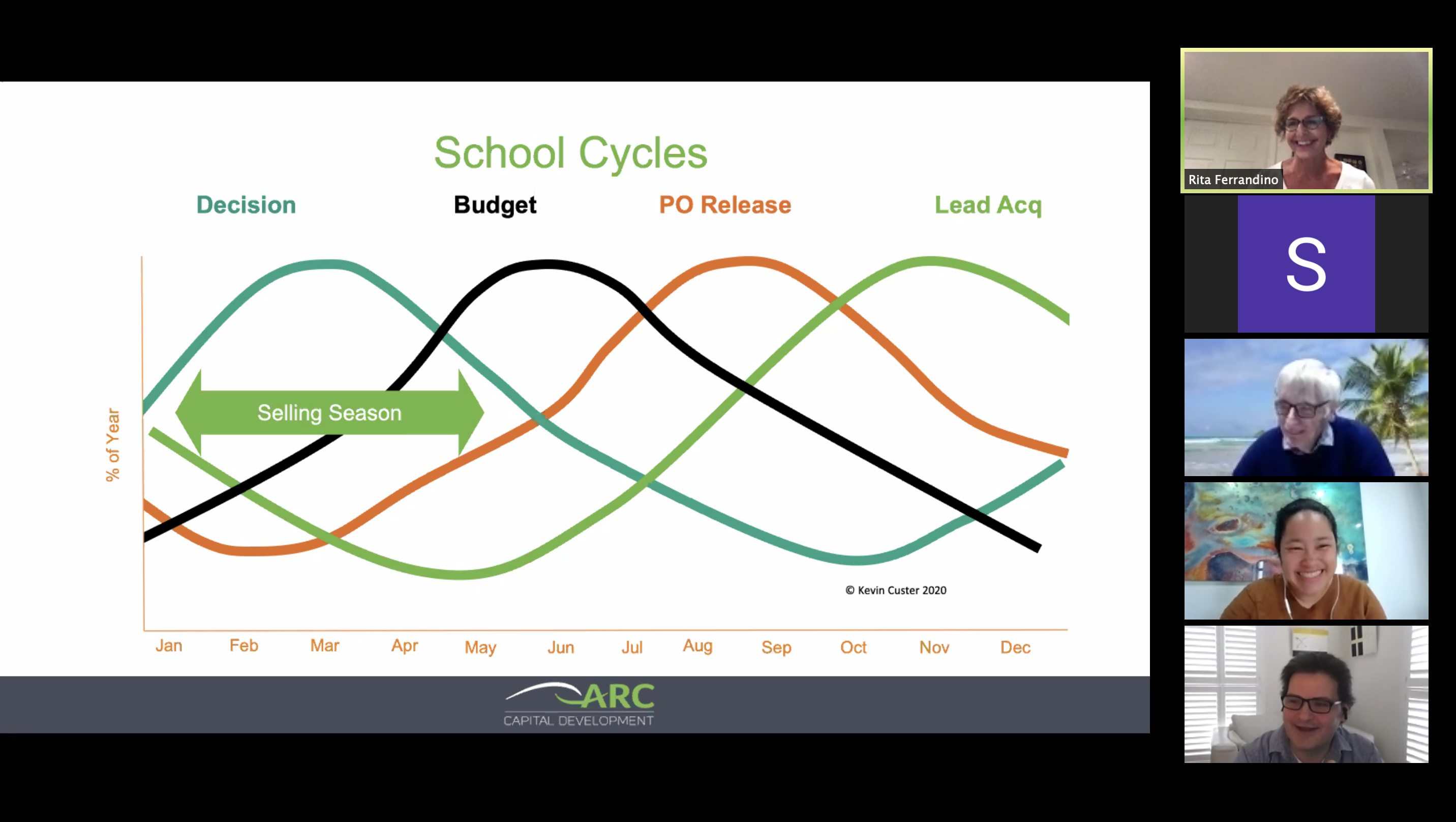
We were grateful to have Rita for more than one event, including this session on the landscape of the US K-12 market.
She walked through the acquisition stages, relative to the number of customers. For example, when an EdTech reaches 100 customers, she recommends that is the time when businesses should consider how to implement at scale.
In the US public education system, District Administrators hold the most purchasing power. When developing a sales plan, it is critical to understand the players in these districts in order to create a strategy of how to approach them.
It can be challenging to establish trust and new relationships with school districts. Each district has their own unique set of problems and needs, so ensure your product or service is both a solution and complements the technology that exists.
Michael Golden, Executive Director at Catalyst Penn GSE, spoke about innovation trends and how Catalyst connects innovators and entrepreneurs with District Administrators.
He also emphasised that effectiveness research is key. This includes considering how to communicate the value of the EdTech solution, as well as how it stands up in different contexts.
The key roadblock in education transformation? Collective will.
Thank you to all the speakers across the program for sharing their knowledge of the EdTech space and offering their insights to keen, innovative Australian EdTechs seeking to enter the US market. Thank you to the delegates for attending, asking thoughtful questions, and engaging with us online.
The USA EdTech Trade Mission, supported by Global Victoria, Study NSW, and Austrade, was online trade mission held 22 & 23 | 29 & 30 September 2020.

